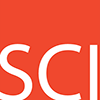The concept of “open knowledge” has a long, rich history going back centuries. Indeed, the creation of science itself is all about open—making sure that what we call knowledge is verifiable, transparent, accountable, and available for all to see. Over time, a number of movements within this broader open knowledge ethos have emerged and matured—open science, and also open data, open code, open source, open access, open education, and open government.
In the early 2000s, activists inspired by the promise of the still fledgling Internet and also fighting against the high subscription prices of research journals created a manifesto for open access that caught the public’s attention—such that it is in this niche but important field. This manifesto defined exacting requirements for how academic research should be published, and these requirements became even more exacting over time. These requirements were not grounded in evidence of how the scholarly publishing marketplace actually worked, nor in any evidence of what researchers wanted, or what was best for research. Rather, they were ideologically grounded perceptions for what an ideal world of science information sharing should look like—to wit, a world where everything is free (and to accomplish this, publishers as we know them were to be eliminated and subscriptions banned), and copyright wouldn’t interfere with sharing (and to do this, articles were to be licensed CC-BY, meaning they became free to share anywhere, even commercially, with attribution).
Funders bought into this vision, as did most of the EU, and the US has been teetering on the verge of doing so for about a year now. In response, publishers have increasingly changed their models from subscription-based to author pays. This new model doesn’t dominate yet—subscriptions are still the norm (and almost all highly cited research is still published in subscription journals), but the author-pays model has made a huge impact on both research and research publishing.
Judging whether this impact is good or bad is in the eye of the beholder. More and more information is being published in open access format today—slightly more than half of all new journal articles—which has meant easier access to information. But along the way, huge rifts have opened. Publishing still needs to be paid for, for example. Author publishing charges work fine for researchers from rich institutions with big endowments and free-flowing government grants, but not for researchers from most of the rest of the world, who are now faced with publishing charges higher than their annual salaries. The paywall of publishing has been replaced by a “playwall”: If you can’t pay, your research won’t be visible (or equally bad, it will only be visible in a fake journal that charges very low fees, doesn’t do peer review, and also publishes junk articles).
In addition, system costs are still high, different countries are pursuing different open solutions (despite the UN’s attempt to lay out an open science pathway, which SCI helped with), and proliferating fake journals are littering the science landscape with fake data and fake research. In the meanwhile, most researchers are interested in having their work be more accessible, but not paying to publish and relinquishing copyright. And they don’t think that the open access, open data and open science movements have been focusing on the right solutions to improve the impact of their work.
SCI has been deeply involved in this effort since 2015, bringing together stakeholders from around the world as part of its Open Scholarship Initiative (OSI). Our recommendations diverge significantly from the ideological orthodoxy. Rather than seeing open knowledge efforts as some priesthood of the virtuous that is all knowing and all good, we embrace the fact that “open” has a long history that varies across fields and regions, that concepts and definitions of openness are also diverse, and that the only way to develop equitable and sustainable solutions for open is to work together and include all stakeholder groups, especially researchers.
Richard Poynder is a journalist who has closely followed the last 20 years of open access developments. He’s a little less sanguine than OSI about the future of open. To Poynder, the open access movement has failed—his November 24th Twitter post announcing his retirement from reporting about the movement caused a wave of angst and self reflection in the scholarly communication community. To Poynder, as the movement’s ideological objectives have proven unworkable, these objectives have morphed over time and spawned a cornucopia of unintended consequences. This evolution, plus the fact that commercial publishers—the original targets of the open access movement—are now effectively in charge of open access, means to Poynder that open access is dead. Long live open access.
This is a complicated and important subject for the future of science. Figuring out the best ways to share research information at scale is critical for the future of research. This isn’t a question of finding one-off solutions, but of developing research-focused, and globally widespread, sustainable, and effective knowledge-sharing policies and practices, which have been in flux for years now and continue to evolve.
To learn more about SCI’s work in this field over the last nine years, you can read OSI’s latest report on evidence-based open at osiglobal.org (also linked below). To learn more about Poynder’s thinking behind declaring the open access movement dead, read his interview from the December 7, 2023 Scholarly Kitchen.
Poynder interview OSI's recommendations
